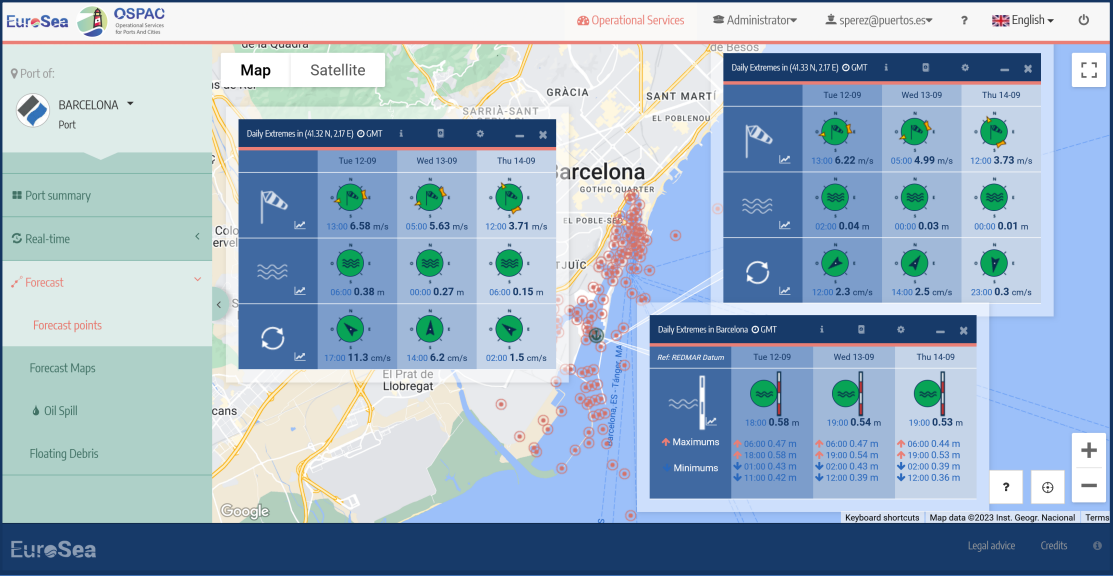
Description
The OSPAC software represents a pioneering system designed to offer real-time notifications about marine conditions for ports and urban centres. By providing timely alerts on sea conditions, it stands as a valuable tool for maritime operations, enabling them to make informed decisions and ensuring safety.
Impact During the Project
Elevated Maritime Operations in Key Ports:
Traditional State: Before OSPAC, ports might have had to rely on less precise or less timely data, possibly from multiple sources, to make operational decisions.
Advancement: With OSPAC, ports like Barcelona, Taranto, and Alexandria can benefit from a consolidated platform that offers data on significant wave height across extensive areas. This is especially beneficial for ports like Taranto, where specific points of interest can be closely monitored.
Augmented Safety Measures:
Traditional State: The Barcelona Energy Centre and its surrounding region could have been at risk due to lightning strikes, with limited to no prior warnings.
Advancement: OSPAC’s incorporation of lightning detection data provides a proactive safety measure, allowing the Barcelona Energy Centre to anticipate and potentially avoid lightning strikes, ensuring safety for both infrastructure and personnel.
Impact Post Project
Widespread Adoption Across Global Ports:
Traditional State: Ports worldwide might have had to juggle multiple systems or rely on outdated methods to get sea condition data, potentially leading to inefficiencies or inaccuracies.
Advancement: Given the success of OSPAC in the mentioned ports, there’s potential for its wider adoption across various global ports. The software’s ability to improve maritime operations and ensure safety can make it a sought-after system. The number of installation report downloads could serve as an indicator of this expanding interest.
Advancement over and above State of the Art
OSPAC emerges as a beacon of innovation in the realm of oceanographic services. By converging real-time data streams into actionable alerts, it addresses critical operational and safety challenges faced by ports and urban centres near the coastline. In comparison to traditional systems or methods, OSPAC offers improved precision, timely data, and enhanced safety measures. While its immediate benefits are evident in ports like Barcelona, Taranto, and Alexandria, the software’s broader impact lies in its potential for widespread adoption, setting a new standard in maritime operations and safety globally.
Links and References
Link to the OSPAC tool: www.ospace.es
Link to video: https://youtu.be/E9ZrtIoaC64?si=8TQs4a4-Urlyxp6e
Link to D5.5 – Final version of the software running operationally for the demonstration: https://eurosea.eu/download/eurosea_d5-5_final_version_of_the_software_running_operationally_for_the_demonstration_revised_resubmitted/?wpdmdl=5583&refresh=650197ca3e3d41694603210
